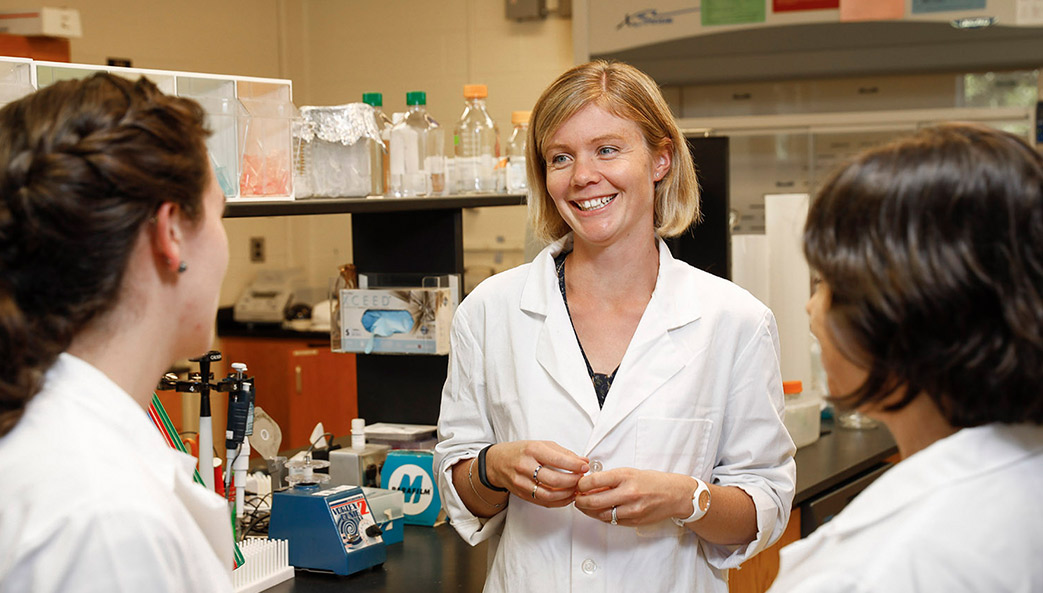A new computational tool developed by UGA researchers shows promise for understanding the vast array of microbial organisms that inhabit our bodies.
This collection of bacteria, archaea, fungi, protozoans and viruses—known as the microbiome—has both good and harmful implications for human health.
With the creation of this new big data tool, researchers will help identify differences in patterns of microbes that may lead to a better understanding of chronic diseases.
“Accumulating evidence suggests that the microbial ecosystems play a crucial role in human health,” says Wenxuan Zhong, professor of statistics and director of the UGA Big Data Analytics Lab. “However, our understanding of microbial ecosystems is very limited.”
Zhong and her team created a computational tool called MetaGen that can simultaneously identify microbial species and estimate their abundance in multiple samples.
“Our effort will greatly help both the computational biologist and the experimental biologist in studying the changes of the microbial ecosystems, detecting pathogens and reducing the diagnostic error in microbial-related human diseases,” she says.
The team tested metagenomics data of chronic diseases such as inflammatory bowel disease, Type 2 diabetes and obesity. They were able to simultaneously test 378 billion base pairs—the equivalent of testing more than 100 human genomes—and identified more than 2,000 microbial species, according to Zhong.
“We found that eight species were significantly more common in IBD patients and found one beneficial bacteria, Roseburia intestinalis, significantly less abundant in Type 2 diabetes patients,” she says. “These findings will likely help to identify future therapeutic targets for these diseases.”
While big data methods illuminate the complicated interrelationship between human disease and our environment, advances in computing power combined with novel statistical approaches are laying the foundation for a vast realm of biological discoveries. Researchers now can sequence large amounts of DNA that have been extracted from environmental samples, instead of lab cell cultures. This makes it possible to identify novel microbial species and study their distribution variation in different samples.
While MetaGen is powerful, using the tool isn’t quite a one-step operation.
“A sample with mixed bacteria is sequenced all together, but we cannot sequence the full genomes at once,” Zhong says. “Instead the tool sequences fragments so the genomes are fragmented. Afterward, they are aligned to show the makeup of thousands of full genomes.”
Zhong’s team includes Ph.D. candidate Xin Xing. The research was published in Genome Biology.
This story appeared in the spring 2018 issue of Research Magazine. The original press release is available at https://news.uga.edu/microbiome-analysis-tool-will-help-scientists-understand-chronic-disease-environment/.






